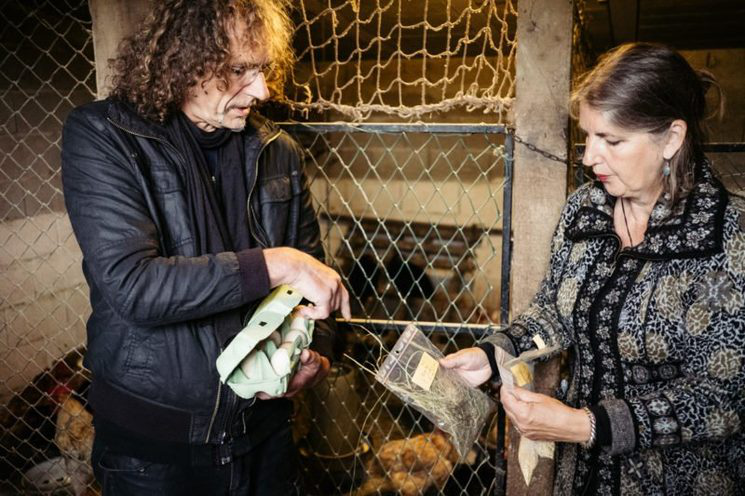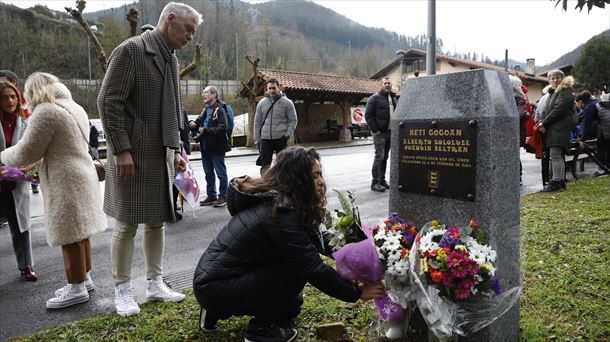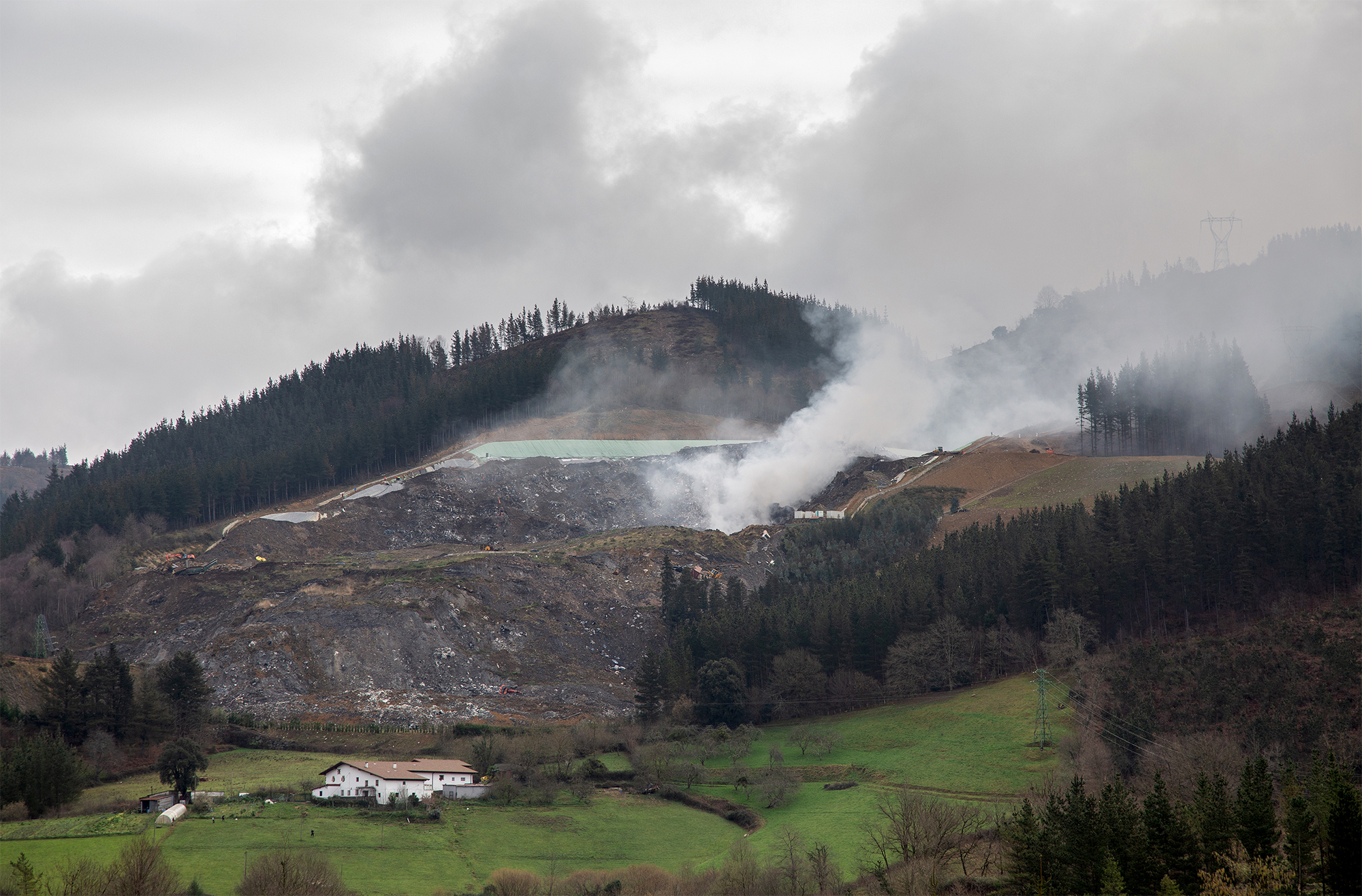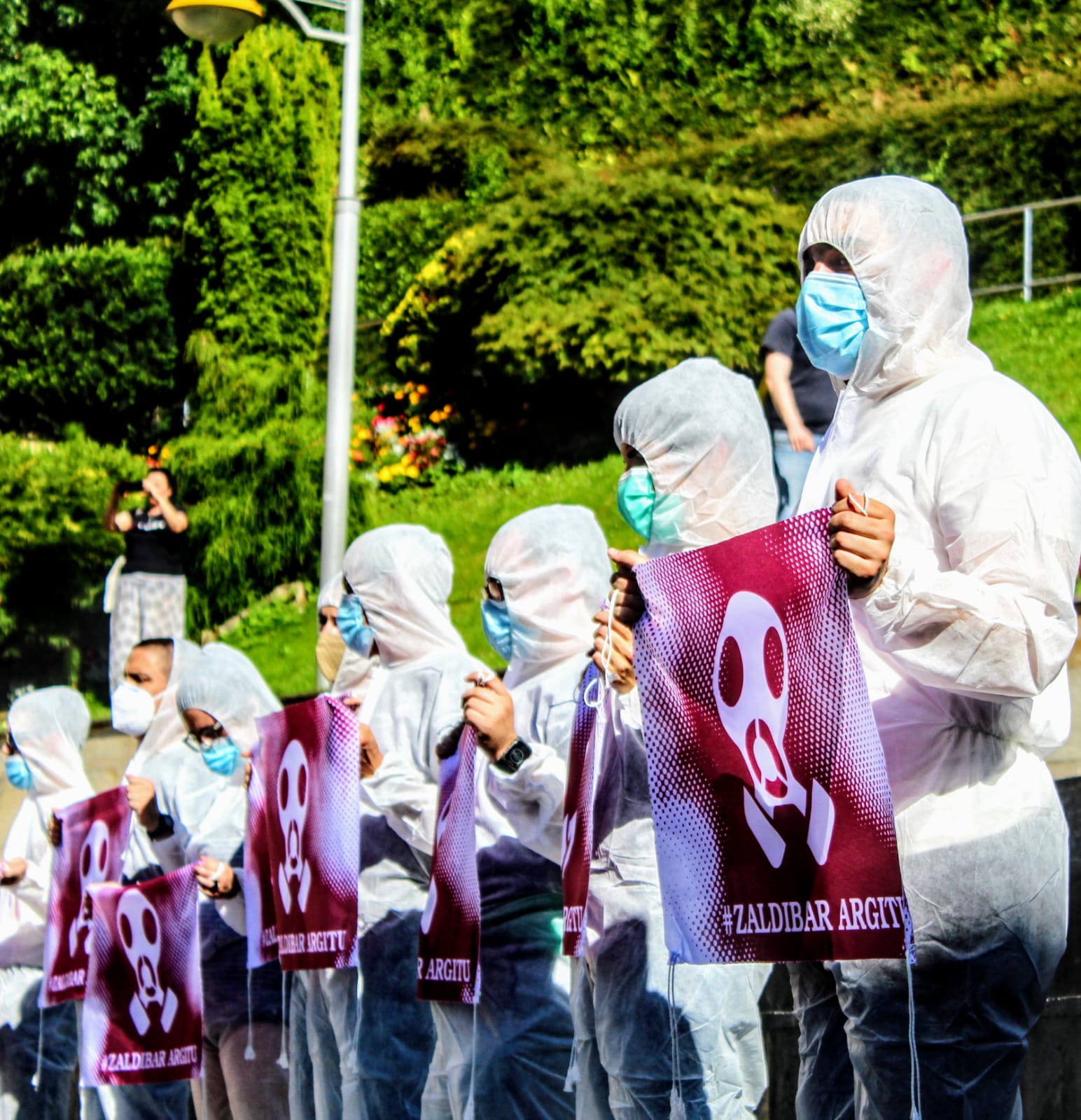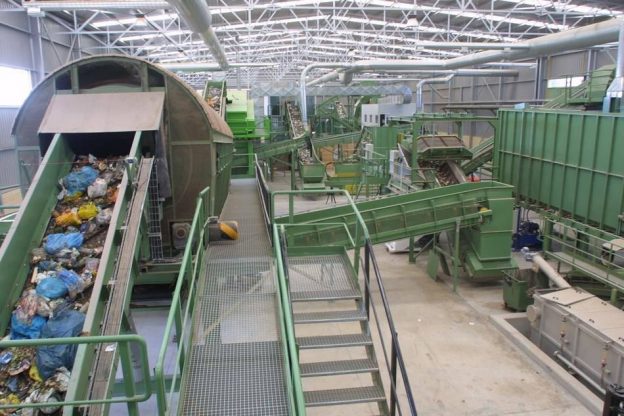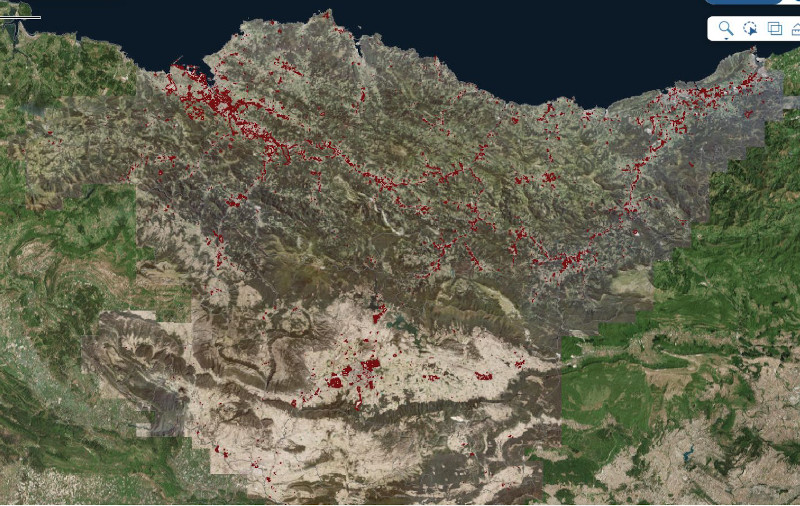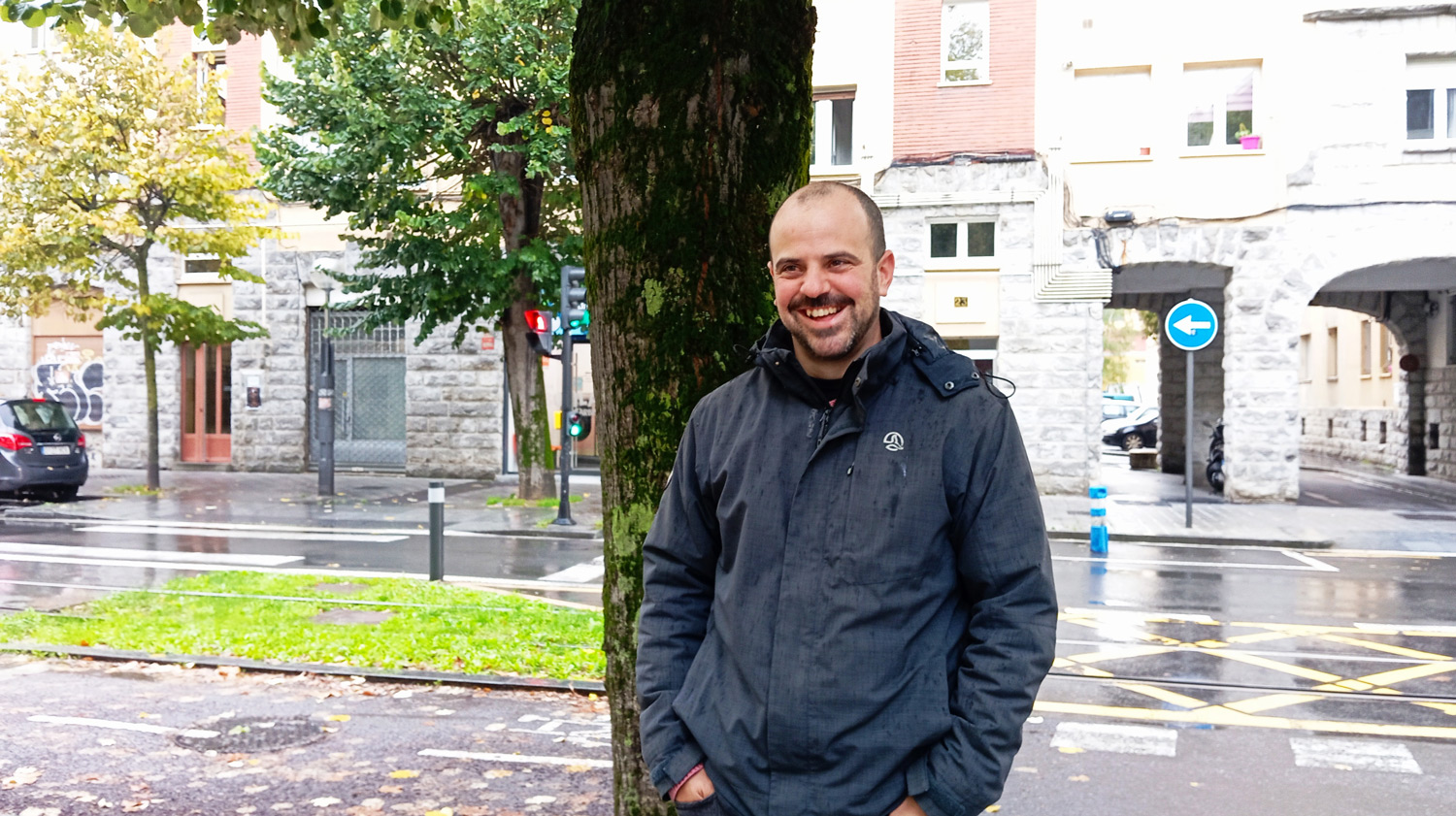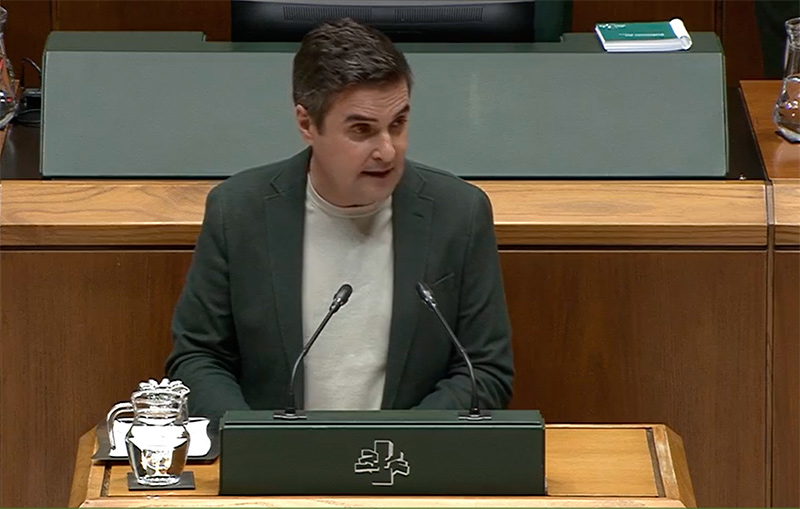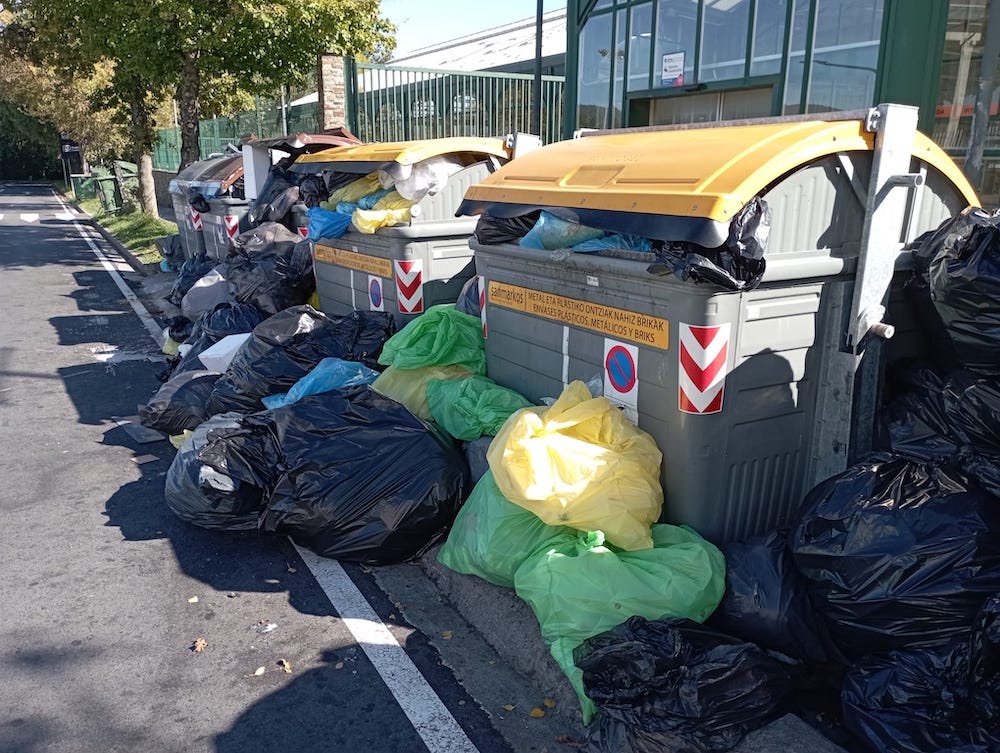In Spain, more water has been bottled than ever and it has come down in Hego Euskal Herria
- In 2022, a historic record broke in the Spanish state, with almost 8.7 billion litres packed, according to statistics from the Institute of Geology and Mining. It is 580 million more than the previous year and 4.8% more than the milestone set in 2019.
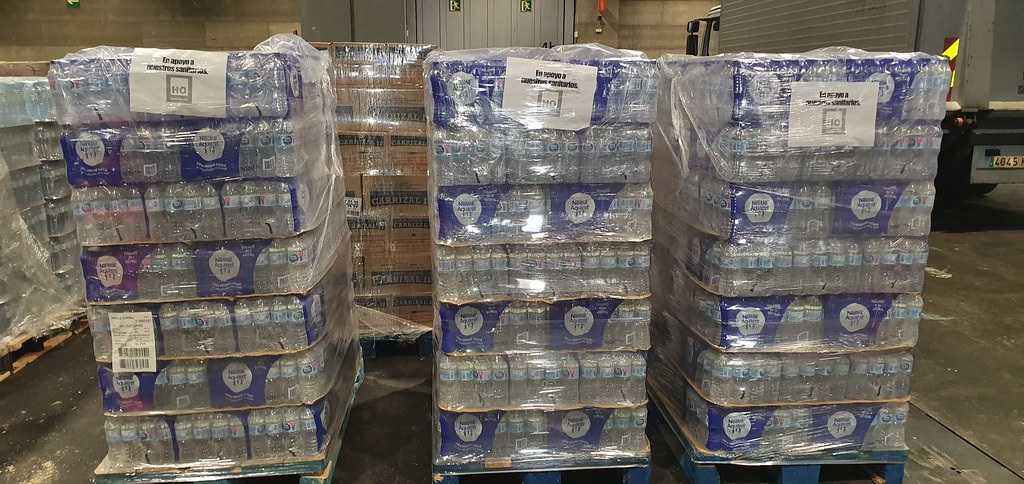
The Spanish Waste Act entered into force in April 2022. It said: "To reduce the consumption of single-use packaging, public administrations will encourage the consumption of drinking water in their offices." And, for the same purpose, also for the hospitality industry: "In establishments in the hospitality and catering sector, consumers, customers or users of their services will always have to be offered the possibility of consuming free and complementary non-bottled water".
Data indicate that with the current measure of reducing the number of disposable bottles, mineral water companies are packaging more than ever. These 8.699 million litres account for almost twice as much as ten years earlier.
In 2022, the state consumed some 2.9 billion liters of bottled water, according to the National Food Consumption Report of the Ministry of Agriculture. It was less than in 2021 (-2.3%), but 5.6% more than in 2019. This volume amounted to EUR 630 million.
In Hego Euskal Herria, below
The Journal presents in a table the data from 2010 to 2022 and the results are revealing. Over a 12-year period, bottled water in Spain has increased by almost 26%. Most of them in the Balearic Islands, almost 300%. Behind Andalusia, 77%.
On the contrary, in the Cantabrian section it falls the most, with 62% in Cantabria and 59% in Asturias. In Hego Euskal Herria it has also gone down, but less. 35% in Navarra and 29% in Araba, Bizkaia and Gipuzkoa.
Lehengai anitzekin papera egitea dute urteroko erronka Tolosako Lanbide Heziketako Institutuko kimika industrialeko ikasleek: platano azalekin, orburuekin, lastoarekin, iratzearekin nahiz bakero zaharrekin egin dituzte probak azken urteotan. Aurtengoan, pilota eskoletan kiloka... [+]
The City Hall of Donostia-San Sebastián announced at last Thursday’s plenary session that it will increase the waste rate by 26.5% from January 2025, claiming that Waste Law 7/2022 obliges this. Eguzki, for its part, has denounced that the law only applies in terms of costs,... [+]
August is the holiday month for many people, including those who rule. And yet it is common to take advantage of the month of August to deal with some issues without much noise, albeit of great importance.
This is what is happening with the project to centralize sludge... [+]









